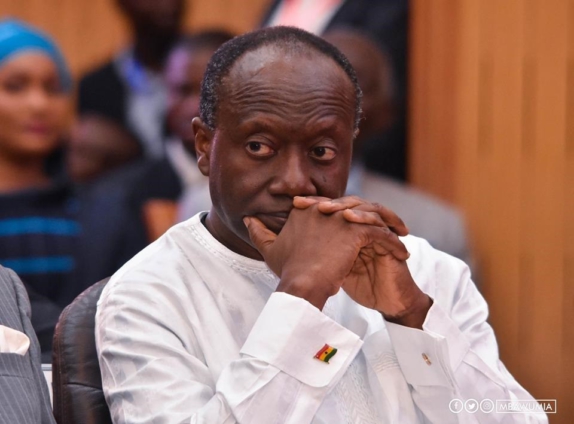Government will borrow ¢3.78 billion in the first quarter of this year to finance part of the budget, its Issuance Calendar has revealed.
For the first three months of 2022, government plans to issue a gross amount of ¢24.5 billion, of which ¢20.7 billion is to rollover maturities.
This indicates that the government's debt level is not going to reduce anytime soon.
As usual, most of the funds to be mobilised will come from the 91-day Treasury bills, a move that has helped reduce foreign debt but rather crowded out the private sector from access to financing on the domestic market.
According to the data, the government will borrow as much as ¢11.3 billion of the 91-day T-bills during the period, higher than the previous quarter.
It will be followed by the 182-day T-Bills in which a total of ¢3 billion will be mobilised. Then, finally, the biggest of ¢1.6 billion will be issued in March 2022.
¢2.15 billion will, however, be mobilised from the 364-day bills. The majority of the funds are expected to be raised this month.
¢2 billion is also expected to be raised from a 6-year bond. This is expected to be done in January 2022.
Again, the government is expected to issue a 7-year and 10-year bond in February and March 2022, respectively. ¢1.2 billion and ¢800 million are expected to be borrowed from both resident and non-resident investors.
Government said the calendar is developed based on the Net Domestic Financing provided in the 2022 Budget, the 2022 domestic maturities for the period, the 2022 Borrowing Plan and the Medium Term Debt Strategy.
Public debt stock hits ¢341.8bn as of September 2021
Ghana’s public debt stock hit ¢341.8 billion in September 2021, the November 2021 Bank of Ghana Summary of Economic and Financial Data revealed.
This was equivalent to 77.8% of Gross Domestic Product (GDP).
Between July and September 2021, ¢5.9 billion fresh loans were added to the total debt. The surge in debt came largely from the domestic debt and due to the slight depreciation of the cedi to the dollar.
However, the government had indicated in its Issuance Calendar for the final quarter of 2021 that it will borrow just about a billion cedis.
According to the data from the Bank of Ghana, the domestic debt went up to ¢178.1 billion in September 2021, up from ¢173.9 billion recorded in July 2021. This was equivalent to 40.5% of GDP.
Latest Stories
-
Ghana Museums and Monuments Board commemorates International Day of Museums
2 minutes -
MTI urges war on illegal activities behind Ghana’s perennial flooding, says “The Time to Act is Now”
3 minutes -
GMet forecasts rain, thunderstorms across parts of Ghana this evening
5 minutes -
GAA President describes relationship with GES as “very thorny”
9 minutes -
Sam George demands retraction of Lexus gift allegation by NPP activist
11 minutes -
Recruit more education support personnel – TEWU tells gov’t
11 minutes -
ActionAid Ghana, CMCE sensitise women on sexual harassment, exploitation, and abuse
20 minutes -
Ban MPs from sitting on boards of public institutions – Dr Rasheed
26 minutes -
Togolese robbery suspect referred for psychiatric evaluation after allegedly eating his own faeces
32 minutes -
ECG power sale losses hit 32%, highest in over two decades – Energy Commission
34 minutes -
GFA launch fifth edition of KGL Foundation Inter-regional U-17 colts championship
34 minutes -
ECG lost GH¢32 for every GH¢100 spent to procure electricity in 2024, the highest since 2000 – JoyNews Research
35 minutes -
Photos: Mahama swears in new members of NDPC
44 minutes -
Photos from Accra’s latest decongestion exercise
50 minutes -
Ghana inaugurates first-ever Para Swimming Association
52 minutes

